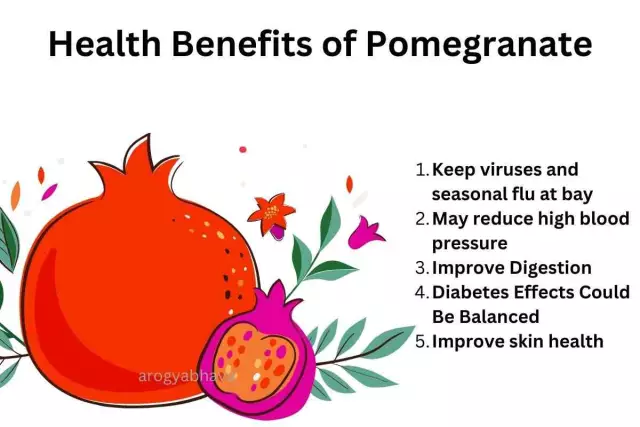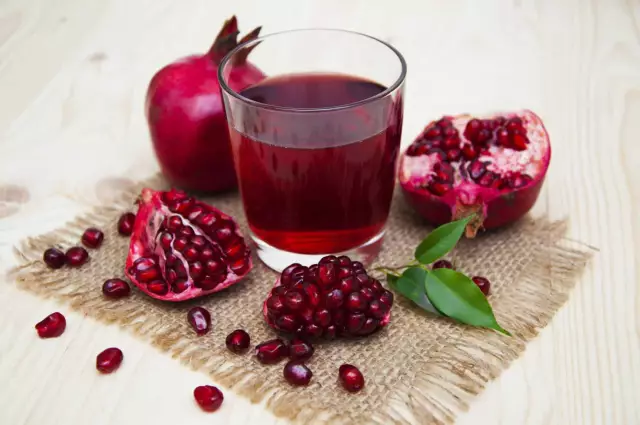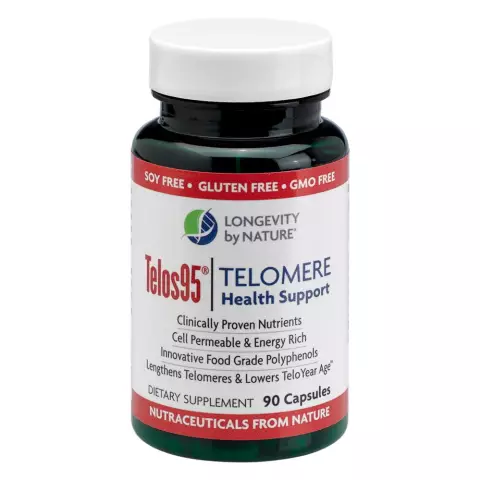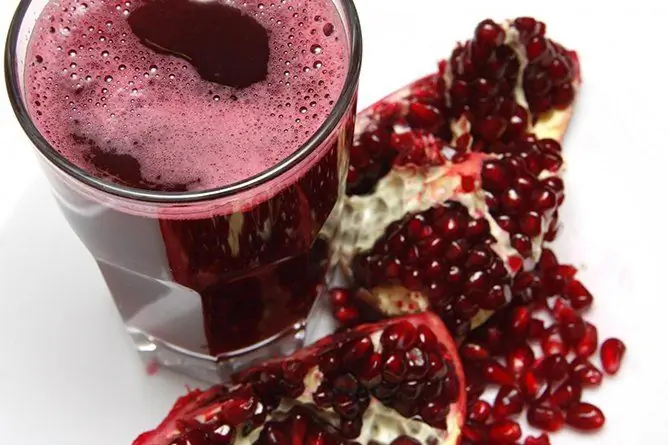- Author Rachel Wainwright wainwright@abchealthonline.com.
- Public 2023-12-15 07:39.
- Last modified 2025-11-02 20:14.
8 health benefits of pomegranate
In our country, pomegranate has long ceased to be an exotic product. Today it can be purchased all year round. Nevertheless, Russians consume this fruit relatively rarely. Unfortunately, not everyone is aware of its nutritional value and wonderful medicinal properties. We decided to correct this omission and acquaint readers with the beneficial effects of pomegranate on the human body.

Source: depositphotos.com
High concentration of nutrients
Pomegranate contains a large amount of vitamins, as well as compounds of potassium, magnesium, calcium, iodine, phosphorus, manganese, sodium and iron. The sweet pulp surrounding the seeds is rich in organic acids, tannins and phytoncides. After drinking 100 ml of pomegranate juice, you can get 36% of the daily value of vitamin K, 30% of vitamin C, 16% of folic acid (vitamin PP). Pomegranate improves appetite. It contains amino acids similar to those found in animal protein. That is why fruits are essential in the diet of people who adhere to the principles of vegetarian nutrition.
Improving the condition of the cardiovascular system
Pomegranate is recommended for hypertensive patients and persons suffering from cardiovascular pathologies. Fresh grains contain substances that help strengthen the walls of blood vessels. Daily consumption of pomegranate juice helps to smoothly lower blood pressure.
Arthritis help
Pomegranate juice is considered an essential component of the diet of the elderly. It not only increases the overall tone of the body, but also affects the joints, slowing down the aging process. Taking pomegranate juice improves the condition of patients with arthritis, relieves pain.
Improving memory
Pomegranate contains a complex of substances that help to maintain high physical and mental activity, improve memory and promote concentration. Freshly squeezed juice is one of the best ways to prevent Alzheimer's disease.
Combating anemia
Pomegranates have long been used in folk medicine as an effective antianemic agent. Their fruits are rich in iron compounds, which is part of hemoglobin, one of the main blood proteins, and citric acid, which activates the absorption of these compounds by the body. To combat anemia, pomegranate juice, half diluted with water, take 100 ml 3 times a day half an hour before meals.
Benefits for diabetics
Unlike many other fruits, pomegranate should be included in the diet of people with diabetes. In addition to glucose and fructose, it contains components that help maintain normal blood sugar levels. Diabetics are advised to consume pomegranate juice as a medicine: 60 drops 4 times a day before meals.
Fight against pathogenic microflora
All parts of the fruit (peel, pulp and seeds) are rich in substances with high antibacterial and antifungal activity. Pomegranate juice is used to relieve cold symptoms, gargle with sore throats. A decoction of the peel is used for inflammatory kidney diseases and diarrhea, as well as an external remedy for eye diseases and otitis media. Dried and powdered peel mixed with olive oil helps to heal burns and cracked skin.
Reducing the risk of developing cancer
Pomegranate juice is an effective means of preventing cancer. It is recommended to be regularly consumed by people living in areas of high radiation or having undergone radiation therapy. The effectiveness of pomegranate in the fight against malignant tumors of the breast and prostate has been clinically proven.
When buying pomegranates, pay attention to the skin. In a ripe fruit, it looks slightly dried and slightly tightens the grains. The green color of the top of the pomegranate (the place where the flower was) indicates non-compliance with storage conditions. A good garnet has a uniform color and density.
The use of pomegranate has only one serious limitation: it should not be included in the diet of people suffering from stomach ulcers and gastritis with high acidity. In addition, pomegranate is not recommended for babies under one year old. For older children, the fruits are safe, but at first the juice should be diluted in half with water and given 1 teaspoon per day, carefully monitoring the body's reaction. Preparations made from pomegranate peel can only be used under medical supervision, as they contain alkaloids that, under certain conditions, can be harmful to health.
YouTube video related to the article:

Maria Kulkes Medical journalist About the author
Education: First Moscow State Medical University named after I. M. Sechenov, specialty "General Medicine".
Found a mistake in the text? Select it and press Ctrl + Enter.






